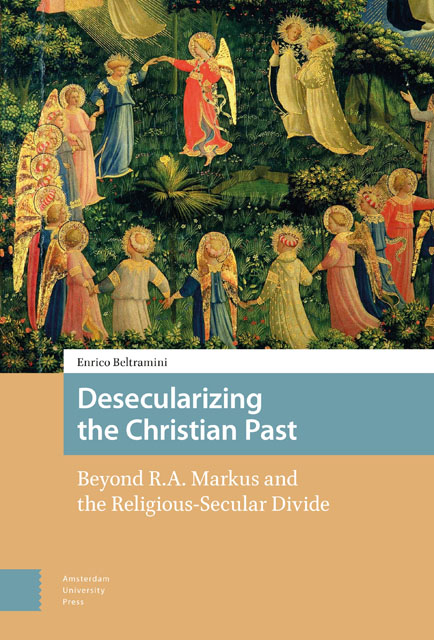1 - Sacramental Ontology
Published online by Cambridge University Press: 18 November 2023
Summary
In Its Own Terms
How to deal with religious ideas in history has recently become a matter of discussion, and the efforts of numerous authors framing their work around the concept of “understanding the historical past on its own terms” is the point of departure. The publication of Seeing Things Their Way almost a decade ago was, in the minds of the editors, an opportunity to explore and apply the methodology of intellectual history that Quentin Skinner pioneered in the field of religious thought. Since the 1970s, in fact, scholars have tried to escape the narrow borders of secular history to deal with the complexities and nuances of religious history, particularly in the fields of medieval and early modern intellectual history. The problem can be summarized in these terms: the scholarly approach to these periods, in which intellectual life was still profoundly shaped by religious ideas and practices, was exclusively secular. The question was a gap between medieval and early modern religious ideas as they were, and as they were seen then, and the analytical lenses crafted for and in modern historical eras. Several scholars have worked to fill the gap, including Heiko Oberman, Heinz Schilling, and Callum Brown. The cultural turn ignited new interest in religion. Keith Thomas recently provided a precious parallel between social and cultural anthropology and historians: the latter have learned from the former to conceive their subject as a “kind of retrospective ethnography” and to understand “the native point of view.” He added:
Instead of trying to classify and order human experience from the outside, as if historical actors were butterflies, and historians entomologists, much imaginative effort has gone into the re-creation of the way things appeared to people at the time. This shift from the etic to the emic, as the linguists would call it, involves an enhanced concern with the meaning of events for those who participated in them, and a new respect for what people in the past thought and felt. Back in the 1950s, it was common to disparage ideas as mere rationalizations of self-interest. Today, even the hardest-nosed historians seek to recapture the vocabulary, categories and subjective experience of the historical actors, rather than anachronistically viewing their behaviour through modern spectacles.
Historians like John Dunn, John Pocock, Richard Tuck, and Mark Goldie have produced excellent examples of this anti-anachronistic approach in the field of political thought.
- Type
- Chapter
- Information
- Desecularizing the Christian PastBeyond R. A. Markus and the Religious-Secular Divide, pp. 47 - 68Publisher: Amsterdam University PressPrint publication year: 2023



